Monday, August 13, 2018
Anthony Davis - composer, musican
Anthony Davis born February 20, 1951, is an American pianist and composer. He incorporates several styles including jazz, rhythm 'n' blues, gospel, non-Western, African, European classical, Indonesian gamelan, and experimental music. Davis is perhaps best known for his operas including X, The Life and Times of Malcolm X, which was premiered by the New York City Opera in 1986, Amistad, which premiered with the Lyric Opera of Chicago in 1997, and Wakonda's Dream, which premiered at Opera Omaha in 2007.
Anthony Davis blurs the lines between jazz, opera, world music, the avant-garde and other styles with unique skill and daring.
He has been doing so since even before his first opera, the Grammy-nominated “X: The Life and Times of Malcolm X,” premiered at City Opera in New York in 1986. That was about 15 years after he was invited to become the keyboardist in the Grateful Dead.
Davis was born in Paterson, New Jersey. He taught at Yale University and Harvard University, and has played with Anthony Braxton and Leo Smith. In 1981, Davis formed an octet called Episteme. He also wrote the incidental music for the Broadway version of Tony Kushner's Angels in America.
Davis has received acclaim as a free-jazz pianist, a co-leader or sideman with various ensembles. Such ensembles include those that featured Smith as bandleader from 1974 to 1977.
Davis is professor of music at the University of California, San Diego. His opera Wakonda's Dream is a tale of a contemporary Native American family and the history that affects them.
His opera Lilith (libretto by Allan Havis) had its world premiere at the Conrad Prebys Music Center in UCSD on December 4, 2009. The story is about Adam's first wife, set in a modern era.
A seemingly forgotten fact about pianist and composer Anthony Davis: he was there at the beginning of the so-called “young lion” phenomenon in jazz during the early 1980s. Indeed, Tony was a member of a motley assortment of musicians that performed at the June 30, 1982, Carnegie Hall concert titled “The Young Lions,” an event produced by Nesuhi Ertegen and Bruce Lundvall for the Kool Jazz Festival.
In the liner notes of the live album from the concert, and told again in an interview a few years ago, Lundvall humorously claims that he talked Ertegen out of using the original title for the concert: “The Young Turks.” And what a difference this name change has made! Now the sine qua non for a generation of jazz “traditionalists” that rose to prominence in the 1980s, the term “young lions” operates as a kind of shorthand for marketing strategies employed by record labels and publicists as well as virtuoso performance practices that hew close to the trope of jazz as “America’s classical music.”
Remarkably, the Carnegie Hall concert busted open the orthodoxies of the “young lion” phenomenon before they were born. On the heels of his tenure with Art Blakey’s Jazz Messengers, Wynton Marsalis was there. But so too were baritone saxophonist Hamiet Bluiett, vibraphonist Jay Hoggard, flutist James Newton, and cellist Abdul Wadud, among many others. In his contribution to the liner notes, Leonard Feather writes “[t]here are touches of Ellington/Carney where Anthony Davis’ piano is prominent,” noting the historical context for the piano and baritone saxophone interplay on Bluiett’s composition “Thank You.”
“It’s all music to me,” said Davis, who is now completing his ninth opera.
Davis’s latest opera, Five, is a work that documents the infamous case of the Central Park Five, which made its debut last year in New Jersey. Donald Trump plays a central role. “He started a cultural war with his rage back then that we haven’t really recovered from. He was demanding the death penalty for these young men [all five were exonerated after years in prison].”
The composer had a scare on the day following the election. “I was driving back to the city after rehearsals for Five and somehow my rental-car GPS took me through Central Park where they were having a massive anti-Trump demonstration. My van had West Virginia [red-state] plates and people were livid. They started pushing on my vehicle. I tried yelling that I was from California — ‘Don’t blame me!’ I wasn’t that far from Trump Tower.”
Davis believes in remaining aware. “We have to realize that racism and corruption were at the foundation of our country. It’s something we have to struggle to overcome and work against all of the time.”
Meanwhile, he’s optimistic about bringing Five to a larger audience. “I’m hoping that the New York City Opera will stage a full production next year. I know it will be controversial, and I’m sure I’ll hear from Donald Trump afterward
Anthony Davis - A Walk Though the Shadow
Anthony Davis - Variations in Dream-Time (Full Album 1983)
Salon Series - Anthony Davis 10/16/2012
Of Blues and Dreams - Anthony Davis Episteme
Anthony Davis & James Newton Quartet live in Moers '79
Information Sources:
http://destination-out.com/?p=2852
https://tidal.com/browse/artist/4065424
https://en.wikipedia.org/wiki/Anthony_Davis_(composer)
http://www.sandiegouniontribune.com/sdut-anthony-davis-60-jazz-opera-and- beyond-2011feb13-htmlstory.html
http://www.sandiegouniontribune.com/entertainment/music/sd-et-spring-arts- music-davis-20180325-story.html
Subscribe to:
Post Comments (Atom)



































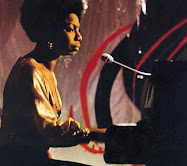

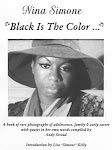

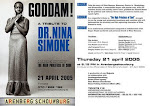

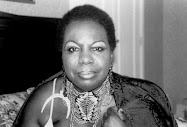






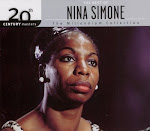



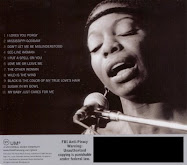
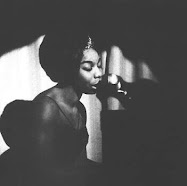

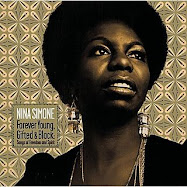









No comments:
Post a Comment